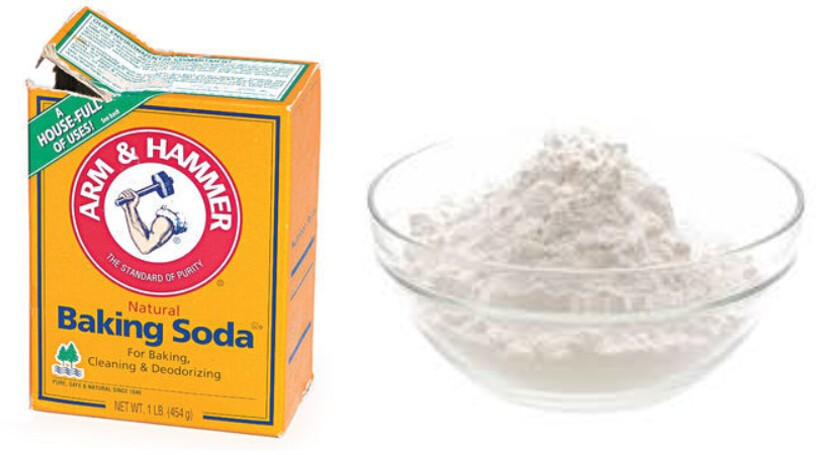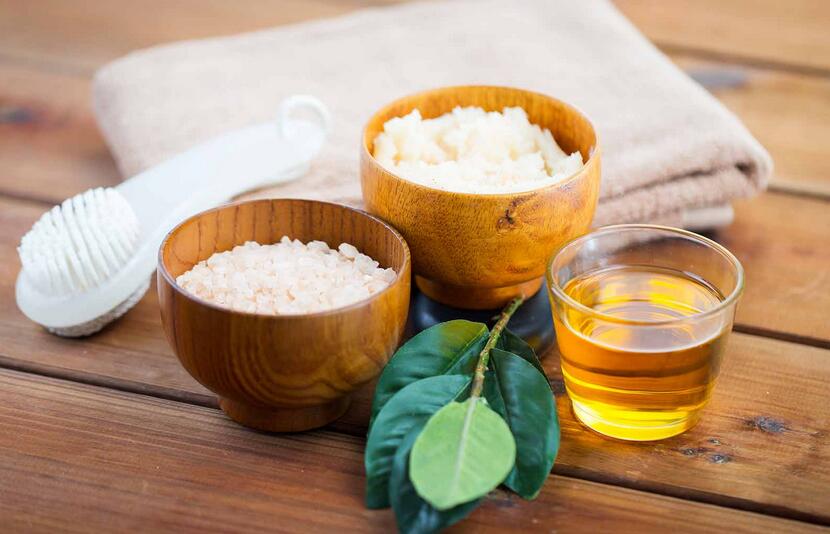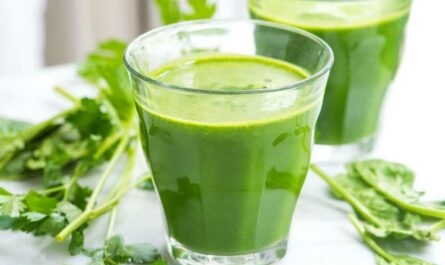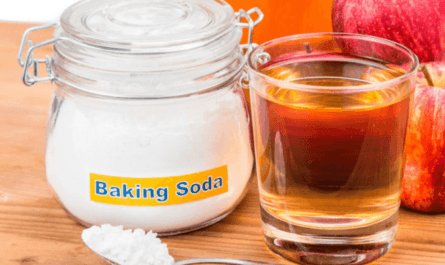Heartburn is a common digestive issue characterized by a burning sensation in the chest or throat. It occurs when stomach acid flows back up into the esophagus, irritating the lining. While there are many over-the-counter and prescription medications available to treat heartburn, one simple and inexpensive remedy you likely already have in your kitchen is baking soda. This article will delve into the effectiveness and safety of using baking soda for heartburn relief. We will explore how it works, potential risks, and recommended dosages.
What is Heartburn?
Baking soda, also known as sodium bicarbonate, is a white crystalline powder commonly used in baking. It has a slightly salty, alkaline taste. When combined with an acid, baking soda reacts. This makes bubbles and gives off carbon dioxide gas which causes the dough to rise. It’s also a mild abrasive, which is why it’s used for cleaning.
But baking soda also has medicinal uses. It’s a popular remedy for indigestion and heartburn because its high pH helps neutralize stomach acid. Baking soda is available in tablet and powder form specifically for this purpose.

How Does Baking Soda Work for Heartburn?
The active ingredient in baking soda is sodium bicarbonate. When ingested, it reacts with the hydrochloric acid in your stomach, neutralizing it and temporarily reducing stomach acidity. This provides relief from the burning sensation of heartburn.
Your pancreas produces sodium bicarbonate naturally to protect your intestines. So in a way, ingesting baking soda is mimicking your body’s natural defense mechanism.
As an absorbable antacid, sodium bicarbonate quickly neutralizes stomach acid and provides fast relief from heartburn symptoms. However, the decrease in stomach acidity is only temporary, so your symptoms may return.
Benefits of Baking Soda for Heartburn
Baking soda provides fast relief from occasional heartburn and is a cost-effective, readily available remedy. Read on to learn more about how it works and its potential benefits!
1. Alkaline Properties
Baking soda is alkaline in nature, which means it can help neutralize stomach acid. When baking soda reacts with the hydrochloric acid in the stomach, it produces carbon dioxide, water, and salt. This chemical reaction can help reduce the acidity in the esophagus and provide temporary relief from heartburn symptoms.
2. Fast relief from occasional heartburn
Baking soda provides fast relief from occasional heartburn by neutralizing excess stomach acid. When consumed in appropriate amounts, it can quickly alleviate discomfort and burning sensations in the chest and throat caused by acid reflux.
Its alkaline nature helps to balance out the acidity, providing temporary but effective relief from mild cases of heartburn. Dissolving baking soda in a glass of water and drinking it when symptoms arise can promptly ease the discomfort associated with indigestion, making it a safe and convenient home remedy for occasional heartburn without any significant side effects.
3. Accessibility and Affordability
Baking soda is a readily available ingredient found in most households. It can be easily purchased at a low cost from grocery stores or pharmacies. The accessibility and affordability of baking soda make it a convenient option for individuals seeking immediate relief from heartburn symptoms.
4. Cost-effective and readily available
Baking soda is an affordable and easily accessible remedy for heartburn, found in most grocery stores. It offers a cost-effective alternative to traditional antacids. Its availability makes it convenient for quick relief from occasional heartburn at home without needing a prescription or doctor’s visit.
Aside from being readily available, baking soda comes with the added benefit of being cost-effective when compared to over-the-counter medications. This makes it a popular choice for those seeking budget-friendly relief from stomach discomfort and acid reflux symptoms.

How to Use Baking Soda for Heartburn Relief
Using baking soda for heartburn relief is a simple process that involves mixing it with water and consuming it in the right proportions. Here’s a step-by-step guide on how to use baking soda for heartburn:
1. Start with the Right Amount
Adults should take no more than 1/2 teaspoon of baking soda in a glass of water every two hours, not exceeding seven 1/2 teaspoons in 24 hours. It’s important to dissolve the baking soda completely before drinking it to avoid stomach upset or gas.
Always consult a healthcare professional before using baking soda for heartburn as part of your regular routine. Using small amounts and seeking medical advice can prevent potential side effects and ensure safe usage.
2. Choose the Right Water
Use fresh, clean water at room temperature for the mixture. Cold water may cause discomfort, and warm water may accelerate the reaction between baking soda and stomach acid, leading to excessive gas formation.
3. Mix Thoroughly
Add the measured amount of baking soda to the glass of water. Stir the mixture well until the baking soda is completely dissolved. This ensures even distribution of baking soda throughout the water.
4. Consume Slowly
Drink the mixture slowly to allow the baking soda to react with the stomach acid gradually. Avoid drinking it too quickly, as it may cause excessive gas or bloating.
5. Pay Attention to Timing
It’s best to consume the baking soda mixture on an empty stomach or at least an hour after a meal. This timing allows the baking soda to interact with the stomach acid more effectively.
6. Monitor Your Symptoms
After consuming the baking soda mixture, pay attention to how you feel. Many individuals report experiencing relief from heartburn symptoms within minutes. However, if your symptoms persist or worsen, it’s important to consult a healthcare provider for further evaluation and guidance.
Baking Soda Dosage for Heartburn
The recommended dosage of sodium bicarbonate for adults is 1/2 teaspoon dissolved in a 4-ounce glass of water. It’s best to sip this drink slowly to avoid side effects like gas and diarrhea. You can repeat every two hours.
Many over-the-counter antacids, like Alka-Seltzer, contain sodium bicarbonate. Always follow the dosage instructions on the package. Tablets or granules generally provide 325 to 2000 mg of sodium bicarbonate per dose.
For children and teenagers, the dosage must be determined by a doctor. Pregnant women and children under 6 years old should avoid baking soda for heartburn as its safety hasn’t been established.
Safety Concerns and Precautions
Here are some safety considerations when using baking soda for heartburn relief:
1. Follow Recommended Dosages
It’s crucial to adhere to the recommended dosages when using baking soda for heartburn. Typically, half to one teaspoon mixed with a glass of water is the suggested amount.
Exceeding this dosage can lead to metabolic alkalosis, a condition characterized by an imbalance in the body’s acid-base levels. This can result in symptoms such as muscle twitching, hand tremors, nausea, and confusion.
2. Consult a Healthcare Provider
If you have pre-existing health conditions, such as high blood pressure, kidney disease, liver disease, or edema, it’s important to consult a healthcare provider before using baking soda for heartburn relief. Baking soda contains high levels of sodium, which can worsen these conditions. A healthcare provider can provide personalized advice based on your specific health needs.
3. Avoid Prolonged Use
Baking soda should not be used as a long-term solution for managing chronic heartburn or gastroesophageal reflux disease (GERD). While it can provide temporary relief, it does not address the underlying causes of these conditions.
Prolonged and excessive use of baking soda can disrupt the body’s natural acid-base balance and potentially lead to other health issues. If you experience frequent heartburn, it’s important to consult a healthcare provider for proper evaluation and management.
4. Interactions with Medications
Baking soda can interact with certain medications, reducing their effectiveness or causing adverse reactions. For instance, baking soda can interfere with the absorption of medications that require an acidic environment for proper absorption.
It’s crucial to consult a healthcare provider or pharmacist to ensure there are no potential interactions between baking soda and any medications you may be taking.
5. Monitor for Side Effects
While baking soda is generally considered safe when used in recommended dosages, it’s important to monitor your body’s response. Some individuals may experience side effects such as bloating, gas, increased thirst, or stomach discomfort. If you notice any adverse reactions, discontinue use and consult a healthcare provider.

Other Natural Remedies for Heartburn
In addition to baking soda, other natural remedies may provide heartburn relief, such as:
- Aloe vera juice: Aloe vera can reduce inflammation in the digestive tract. Drink 1/2 cup before meals.
- Ginger: Ginger has natural anti-inflammatory properties. Try sipping ginger tea when heartburn strikes.
- Licorice root: Licorice root can increase the mucus coating of the esophageal lining, helping it resist acid irritation. Deglycyrrhizinated licorice (DGL) is the safest form.
- Apple cider vinegar: Although acidic, some people report that apple cider vinegar helps their heartburn. Dilute a tablespoon in water and drink before meals.
- Chamomile tea: Chamomile tea may help reduce stress, a common trigger for heartburn. It may also have anti-inflammatory effects.
Remember, even natural remedies can have risks and side effects. Always check with your doctor before adding any new supplement to your routine.
Lifestyle Changes to Prevent Heartburn
Making a few simple lifestyle changes can often help prevent or reduce heartburn:
- Maintain a healthy weight: Excess pounds put pressure on your abdomen, pushing up your stomach and causing acid to back up into your esophagus.
- Avoid tight clothing: Clothes that fit tightly around your waist put pressure on your abdomen and the lower esophageal sphincter.
- Avoid foods that trigger heartburn: Common culprits include fatty or fried foods, tomato sauce, alcohol, chocolate, mint, garlic, onion, and caffeine.
- Eat smaller meals: Avoid overeating by eating smaller meals more frequently throughout the day.
- Don’t lie down after a meal: Wait at least three hours after eating before lying down or going to bed.
- Elevate the head of your bed: If you regularly experience heartburn at night, put gravity to work for you. Place wood or cement blocks under the feet of your bed so that the head end is raised by 6 to 9 inches.
- Don’t smoke: Smoking decreases the lower esophageal sphincter’s ability to function properly.
Making these lifestyle changes in combination with using baking soda for occasional heartburn may help provide longer-term relief.
When to See a Doctor?
Occasional heartburn is common and no cause for alarm. Most people manage the discomfort on their own with lifestyle changes and over-the-counter medications, like baking soda.
But if you have heartburn more than twice a week, it could be a sign of gastroesophageal reflux disease (GERD). See your doctor if:
- Your heartburn doesn’t improve after two weeks of treatment with baking soda or other over-the-counter antacids.
- You have severe chest pain or pressure, especially if it radiates to your jaw, neck, or arm. This could be a sign of a heart attack.
- Your heartburn is causing vomiting or making it hard to swallow.
- You’re losing weight without trying.
- You have persistent nausea, stomach pain, or bloating.
Chronic heartburn can damage your esophagus and even lead to precancerous changes if left untreated. Your doctor can prescribe stronger medications or recommend other treatments.






